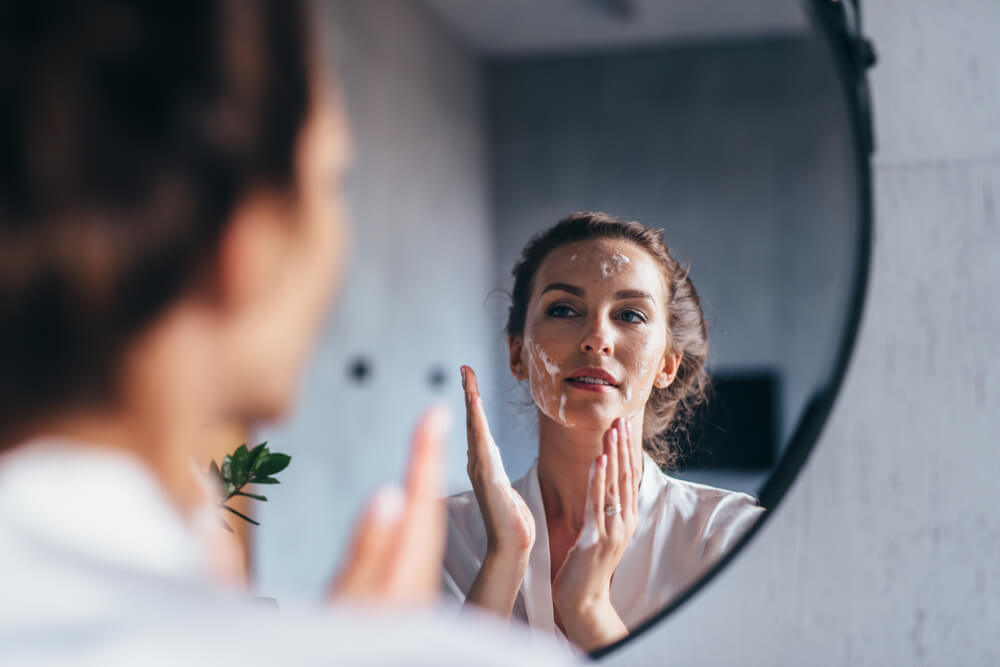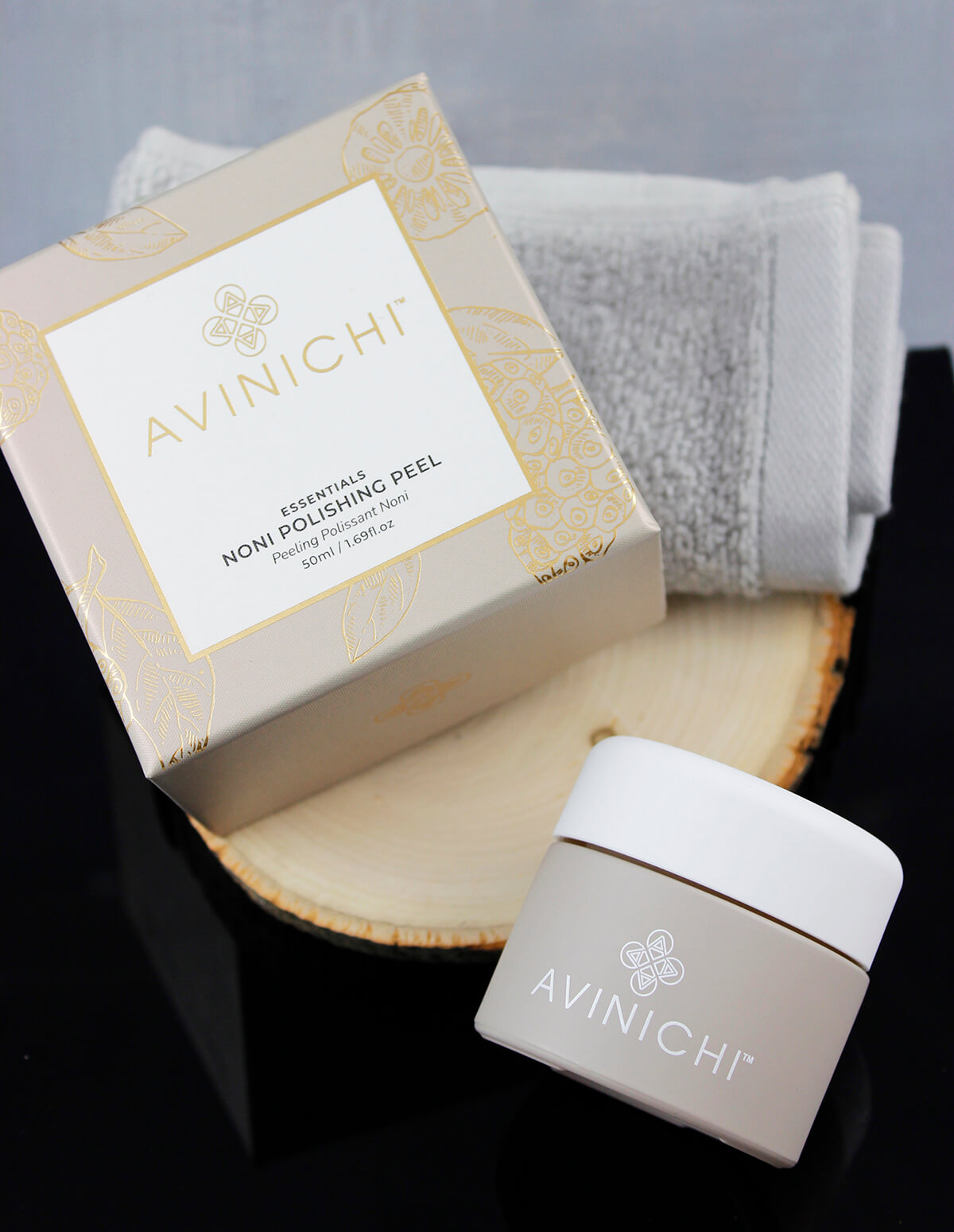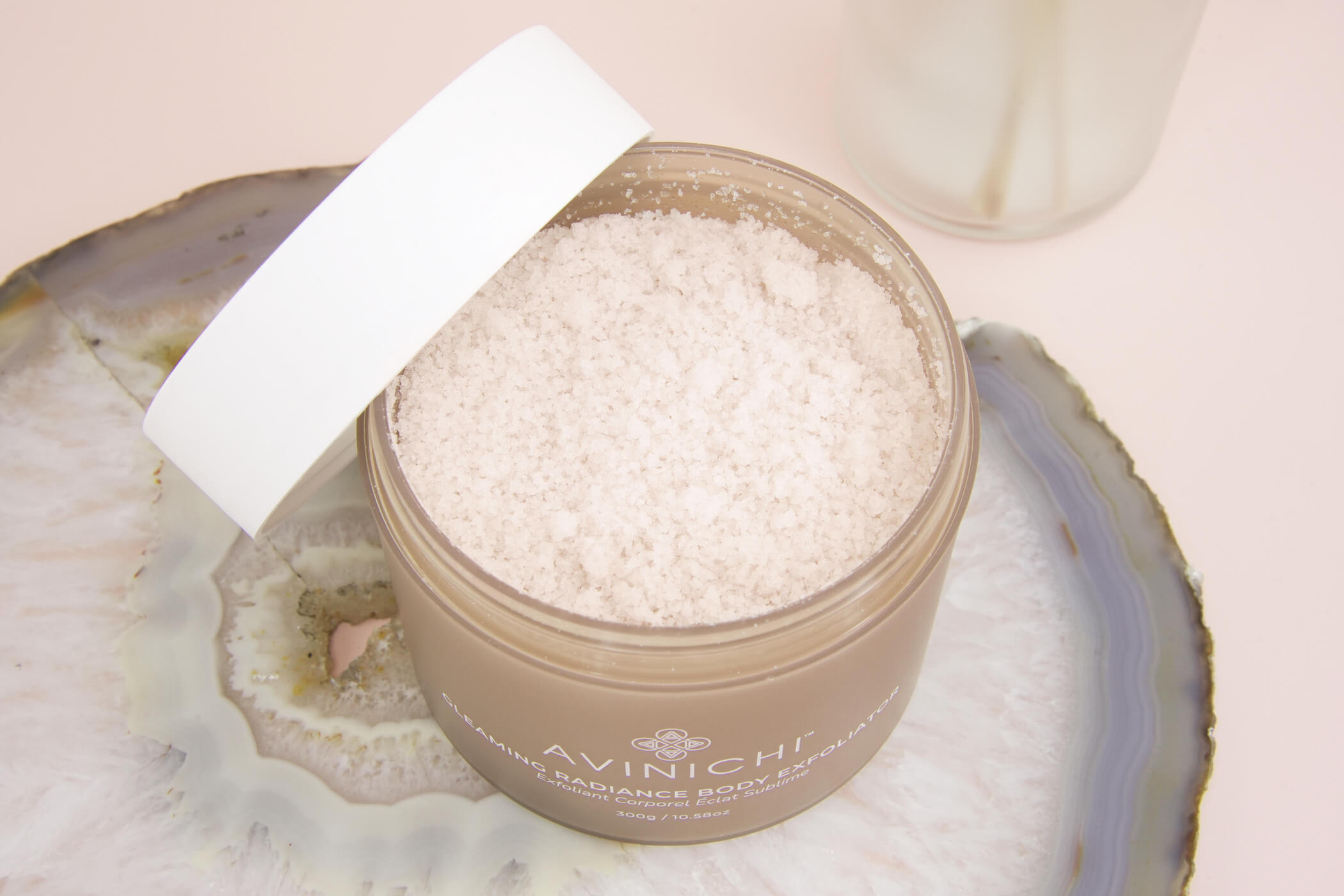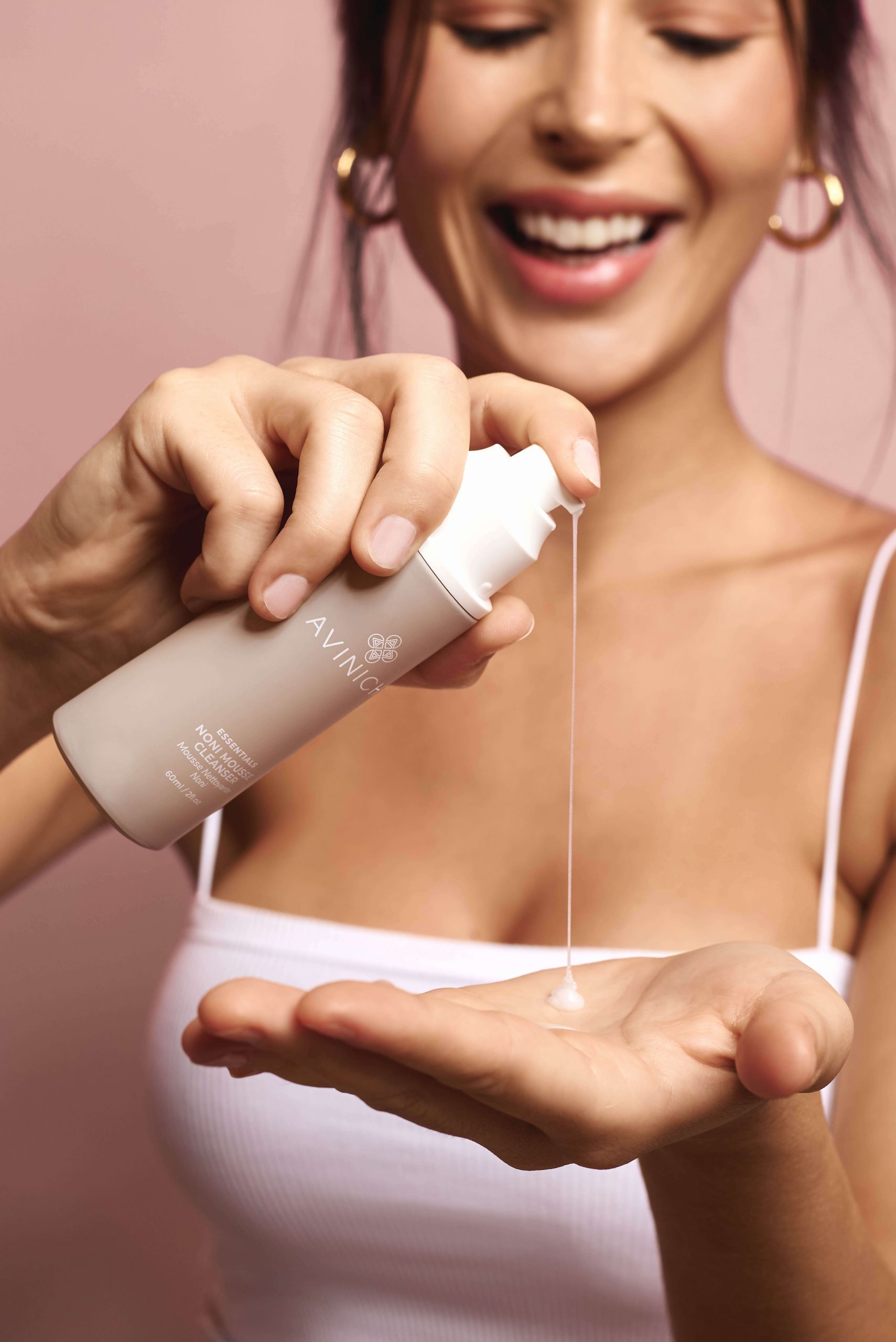Published: March 30, 2024

While most people are aware of the fact that they need to regularly exfoliate if they want to keep their skin looking healthy, knowing how often to do so is a little trickier. Start exfoliating too often and you’ll only end up harming your skin, causing damage that can take several months to heal.
Unfortunately, there’s no single set answer to how often you should be exfoliating. Instead, it depends on your skin type. Read on as Avinichi shares some pro exfoliation advice to help you keep your skin looking and feeling its very best.
Why Exfoliate in the First Place?
Rather than worrying about how often to exfoliate, couldn’t you just skip this step instead?
Yes, but not without affecting your skin. It may not matter so much when you’re young – your skin will happily exfoliate itself. However, its ability to do so slows down with age. Your skin will start to struggle to shed all of the dead skin cells that arise, causing them to build up on your skin’s surface. This will leave your skin looking dull and drab while giving it a texture that feels rough and uneven to the touch.
Exfoliating does away with this by picking up the slack and clearing away the dead skin cells that your skin hasn’t been able to remove on its own. Underneath those dead cells lie younger and smoother cells. Once the dead cells have been exfoliated away, those fresher cells are able to show through. This immediately gives the skin a brighter and more radiant appearance.
Regularly exfoliating will also help you to tackle a number of visible skin concerns. From the appearance of wrinkles to the visibility of acne, dark spots, and blemishes, if you regularly exfoliate your skin, you’ll be able to deal with these problems in no time.
Of course, let’s not forget that exfoliation also enhances the rest of your skincare routine. By clearing away the surface layer of dead skin cells, the rest of your skincare products will be able to penetrate your skin so much more easily. They won’t have to fight through that surface barrier. Instead, they’ll be able to seamlessly sink in. This will give you much better results from the products that you use.
How Often to Exfoliate Your Skin Type
Each skin type has its own unique set of requirements that you need to take into consideration when deciding how often to exfoliate. Here are some guidelines that you can follow:
Oily Skin
Out of all the skin types, oily skin needs to be exfoliated the most often. This is down to all of the excess oil produced by this skin type. It doesn’t take long before this sebum starts to clog up the pores, contributing to inflammation and breakouts. Exfoliation removes those blockages, along with any grease on the skin’s surface, resulting in a matte yet radiant complexion.
You’ll notice the de-greasing effects of exfoliation pretty much immediately. This makes it tempting for people with oily skin to exfoliate more often – some even do this daily! However, while there’s no denying the instant gratification provided by exfoliation, over-exfoliating oily skin will only leave you more susceptible to future breakouts. Your skin will start to produce even more oil to make up for how often you’re removing its existing sebum layer, leaving you even greasier in the long run.
To avoid this while still ensuring that your pores feel clog-free, you should aim to exfoliate oily skin two to three times a week.
Dry Skin
Dry skin can easily start to look dull and rough due to its lack of moisture and sebum. Exfoliation changes things immediately, giving the skin a much softer and smoother finish.
However, each time you exfoliate dry skin, you’ll be removing what little sebum it has. Do this too often and your skin won’t be able to produce more sebum fast enough. This will end up exacerbating your dryness while also leading to dehydration.
For this reason, you don’t want to be exfoliating dry skin too often. Once or twice a week is usually sufficient. Of course, this is assuming that you’re using a gentle exfoliator, which we’ll discuss in more detail soon!
Combination Skin
Combination skin shares characteristics from both oily skin and dry skin. Some areas of the face produce too much oil while others don’t produce enough. This can make it difficult to ascertain how often to exfoliate combination skin.
What’s the solution? Aim to exfoliate combination skin twice a week. However, while you’re exfoliating, spend extra time on your oily areas. If those parts of your face are becoming overly greasy faster than you can exfoliate them, you may want to treat those areas to a third exfoliation each week. However, keep the product away from your dry patches – exfoliating three times a week would likely be too much for dry skin!
Sensitive Skin
If you have sensitive skin, then this means that your skin barrier has been compromised in some way. As a result, it isn’t able to function as efficiently as it should. This means that not only will it struggle to retain moisture, but it will also allow irritants to enter the skin. This is what triggers your sensitivities.
Although exfoliation is vital for removing dead skin cells and excess sebum, those components form a significant part of your skin’s natural protective barrier. Each time you clear these away, you run the risk of leaving your skin vulnerable to even more sensitivities. As a result, you definitely don’t want to be doing this too often!
Therefore, if you have sensitive skin, don’t exfoliate more than once a week. If even this seems to be too much for your skin, cut back your frequency further to once every ten days or so.
Normal Skin
If your skin type is normal, then you’re lucky – you won’t have to deal with the many issues that accompany dry/oily/combination skin. At the same time, this doesn’t give you free rein to exfoliate as often as you want. With your skin already being in such good balance, exfoliating too often can throw this off. Your normal skin could end up turning dry or oily unless you get things right.
This means exfoliating about twice a week. However, it’s also important that you choose the right exfoliant since the wrong formula could cause havoc to your well-balanced skin…
Choosing an Exfoliator For Your Face

No matter your skin type, choosing the right exfoliator is vital. After all, it’s not just exfoliating too often that can damage your skin – using an exfoliator that’s too harsh or abrasive will do the same.
How do you pick the right exfoliating product?
You have two main options; a physical exfoliant or a chemical exfoliant. Physical exfoliants are abrasive substances that physically dislodge dead skin cells. Meanwhile, chemical exfoliants are acids that dissolve the gluey link that keeps dead skin cells attached to the skin’s surface, allowing them to be washed away.
Which is better? Both have their benefits, which is why we’ve combined them in the Avinichi Noni Polishing Peel. It makes use of bamboo powder to provide physical exfoliation properties, along with mandelic acid to chemically exfoliate. On their own, these compounds would be slightly too gentle to make much of a difference. However, when combined, they exfoliate beautifully, yet without damaging the skin.
Even better, this exfoliator can be used on all skin types. Many of the others out there are only suitable for certain skin types, making it difficult to pick the right product. This universal formula makes things easier. It will give you a bright, soft, and smooth complexion each and every time you use it!
What About Exfoliating the Body?

Things are a little different when it comes to exfoliating your body. Unlike the skin on your face, the skin on your body is thicker and more resilient. This means that it isn’t as susceptible to over-exfoliation as the face is. As a result, although you should keep the above guidelines in mind when exfoliating your body, you’ll likely be able to add in an extra exfoliation session each week without harming your skin.
Due to the thicker nature of the skin on the body, physical exfoliants tend to be the better option. One of the best ingredients out there for physically exfoliating the body is salt, which you’ll find in the Avinichi Gleaming Radiance Body Exfoliator. Salt is packed with natural minerals that will quickly have your skin glowing. This body scrub also contains vitamin E, an excellent ingredient for moisturizing the skin and leaving the skin barrier feeling stronger.
Pre- and Post-Exfoliation Skincare

Before exfoliating your skin, it’s important to make sure that you’ve cleansed it. In order for an exfoliator to be effective, it needs to have access to your pores. It will struggle to get there if it needs to first fight through a layer of dirt, so make sure that cleansing is carried out. The Avinichi Noni Mousse Cleanser is a great product for the job!
Once you’re done exfoliating, don’t leave your skin bare. As we mentioned, exfoliation removes part of the skin’s natural protective barrier. This then leaves the skin more susceptible to damage. To prevent this, you’ll need to apply a moisturizer ASAP. This will give your skin an extra temporary barrier, enabling it to recover from exfoliation before it has to once again face environmental damage.
The Avinichi Noni Night Repair Cream is a great follow-up if you’ve just exfoliated your face. Meanwhile, the Glowing Argan Body Butter will have the skin on your body feeling exceptionally soft and supple.
Ideally, try to moisturize your skin while it’s still damp after being exfoliated. This will allow you to trap in extra moisture, giving your skin a boost of hydration.
Summary
As crucial as exfoliation may be for a healthy complexion, it does require a certain amount of planning. Knowing how often to exfoliate, as well as what to exfoliate with, is key. Follow the tips that we’ve shared above and your exfoliation efforts will be all the more effective, giving you skin that feels wonderfully smooth, soft, and silky.
Click here to browse more bestselling skincare products from Avinichi.
